Casey Dreier • May 14, 2018
An 'Exploration Exhibition' to launch the new Planetary Science Caucus
The congressional Planetary Science Caucus formally kicked off last Wednesday with an “exploration exhibition” at the Library of Congress in Washington, D.C. to raise awareness of the caucus and of the many ways in which industry and scientific institutions participate in the exploration of the planets.
Planetary Society CEO Bill Nye and its board of directors were on hand to welcome hundreds congressional staff and seven members of Congress, including the caucus co-Chairs Rep. John Culberson (R-TX) and Rep. Derek Kilmer (D-WA), who also addressed the crowd.
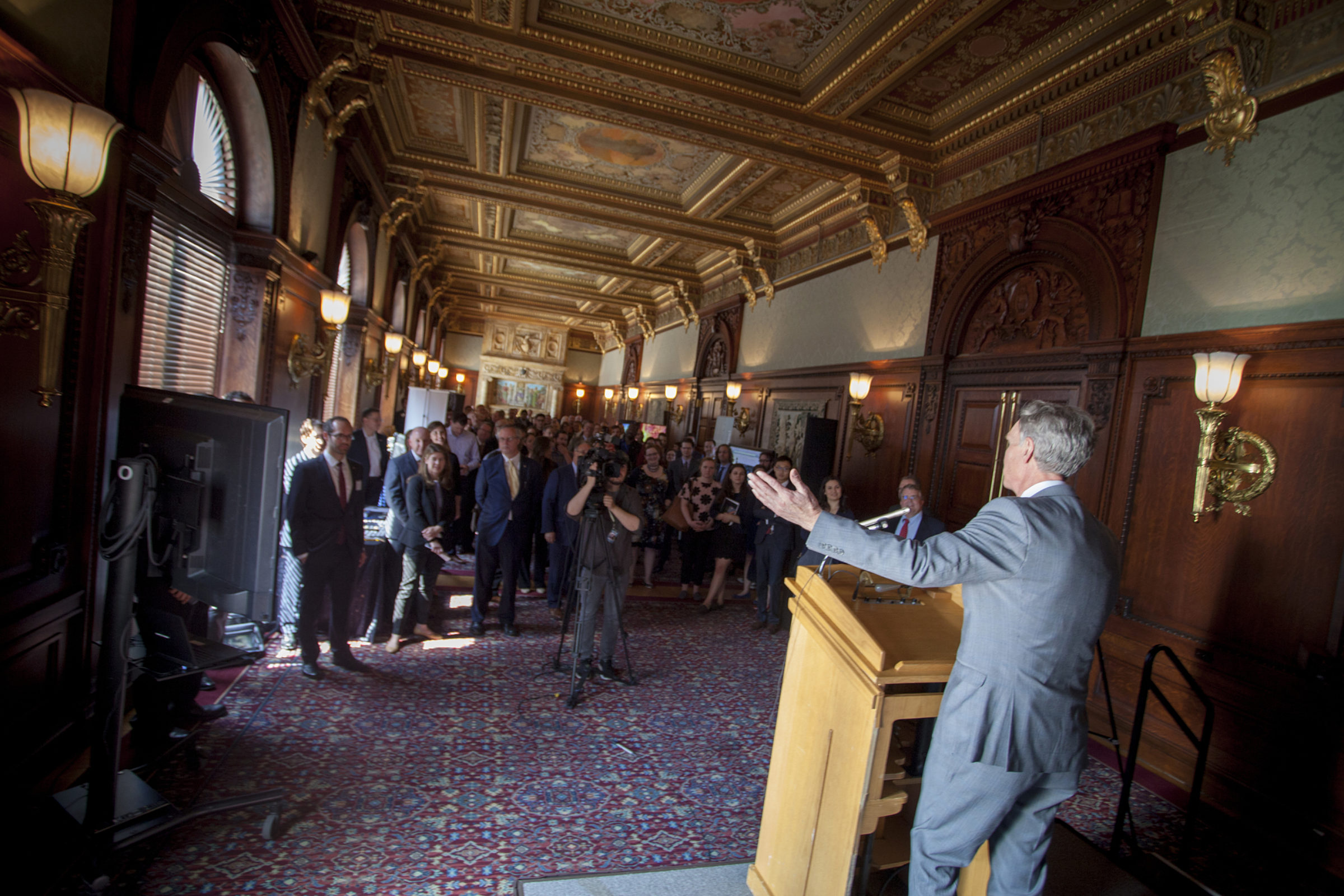
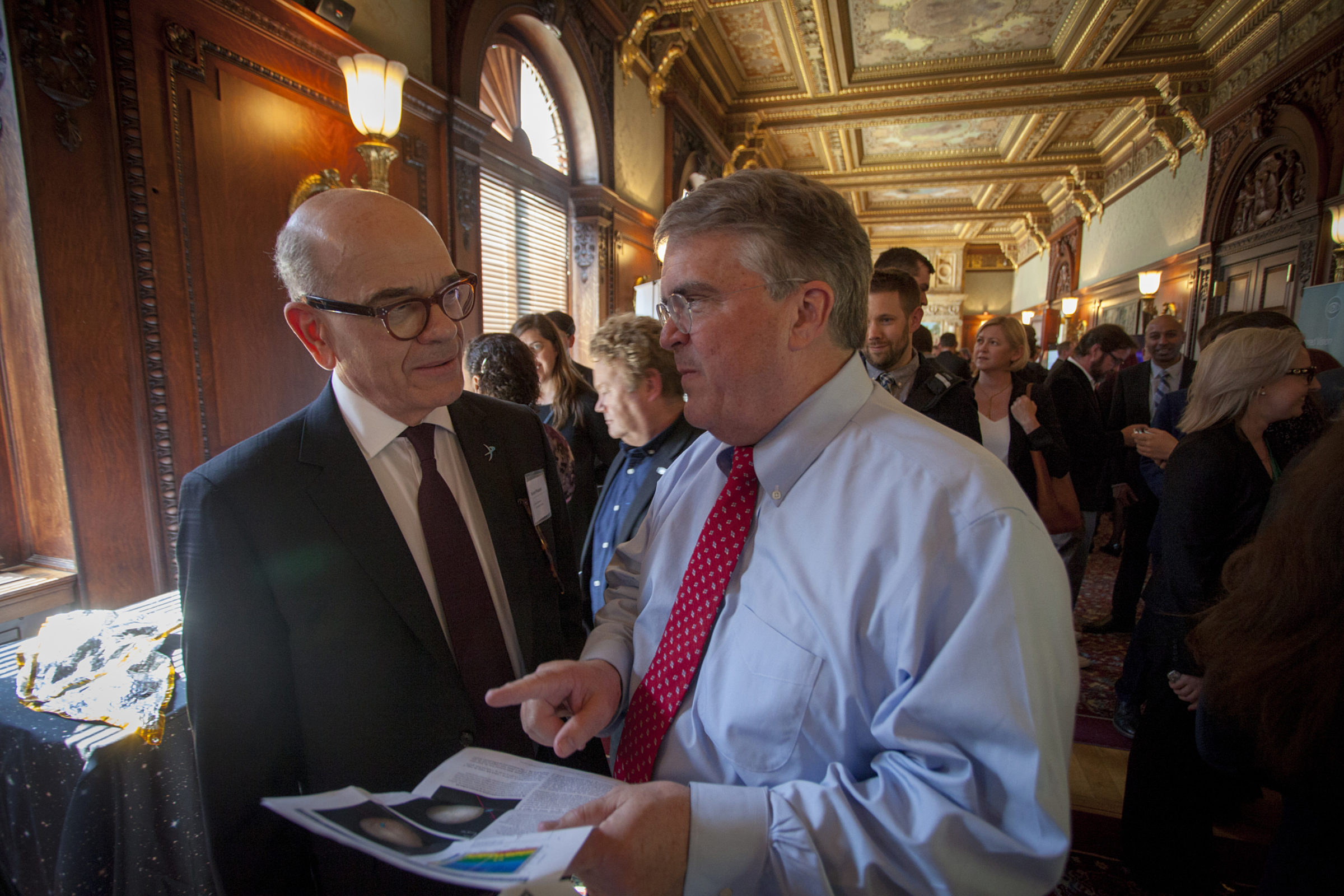
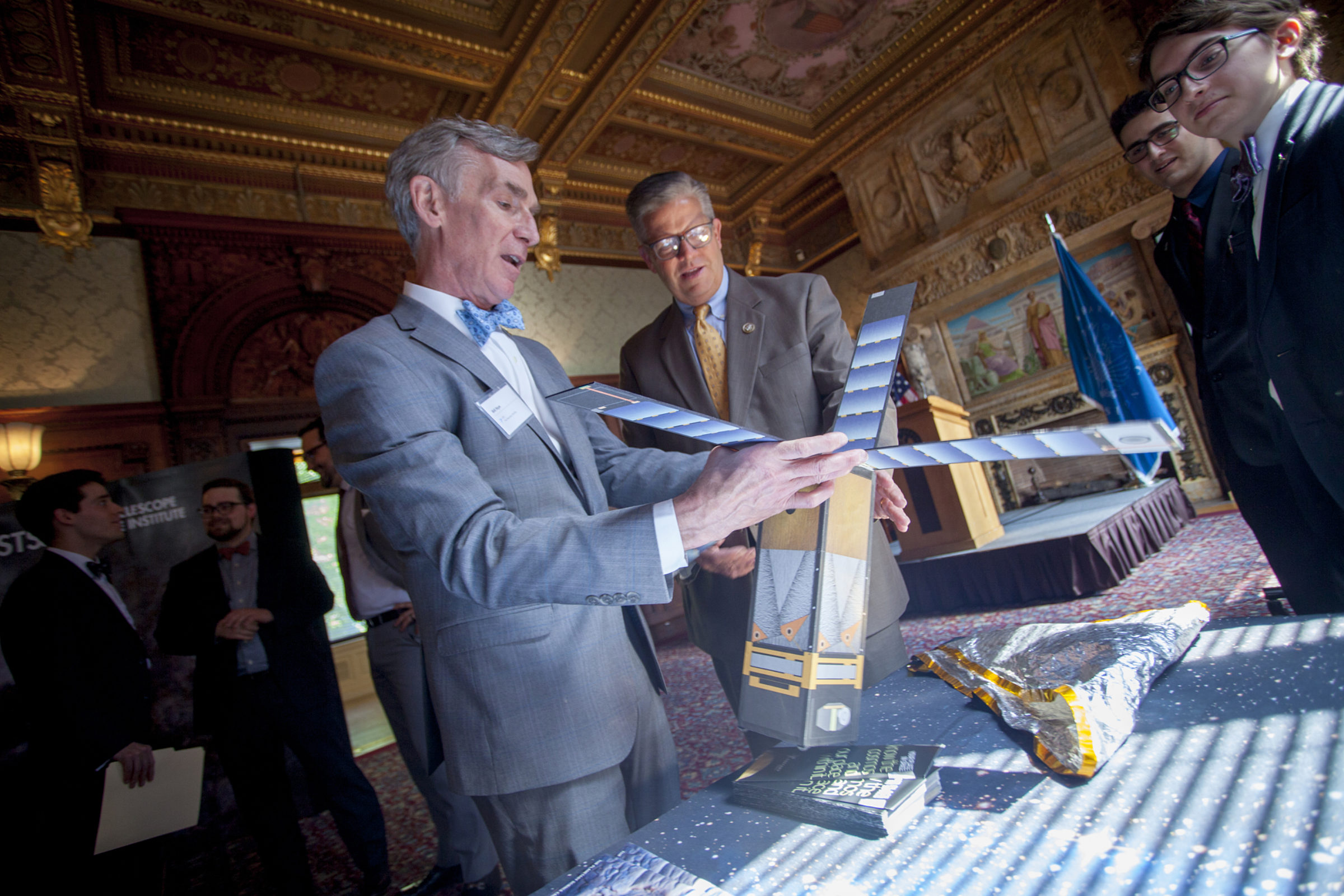
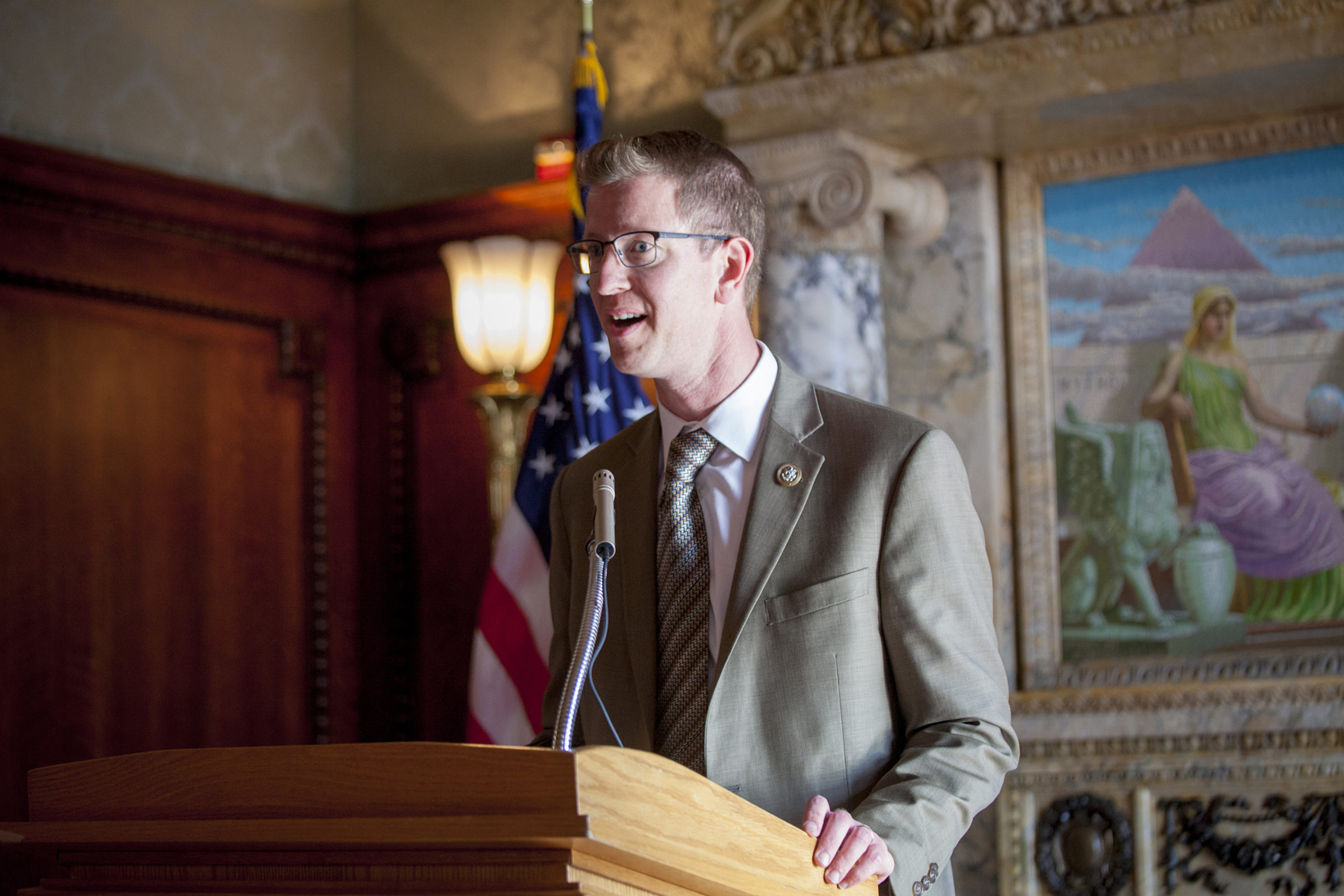
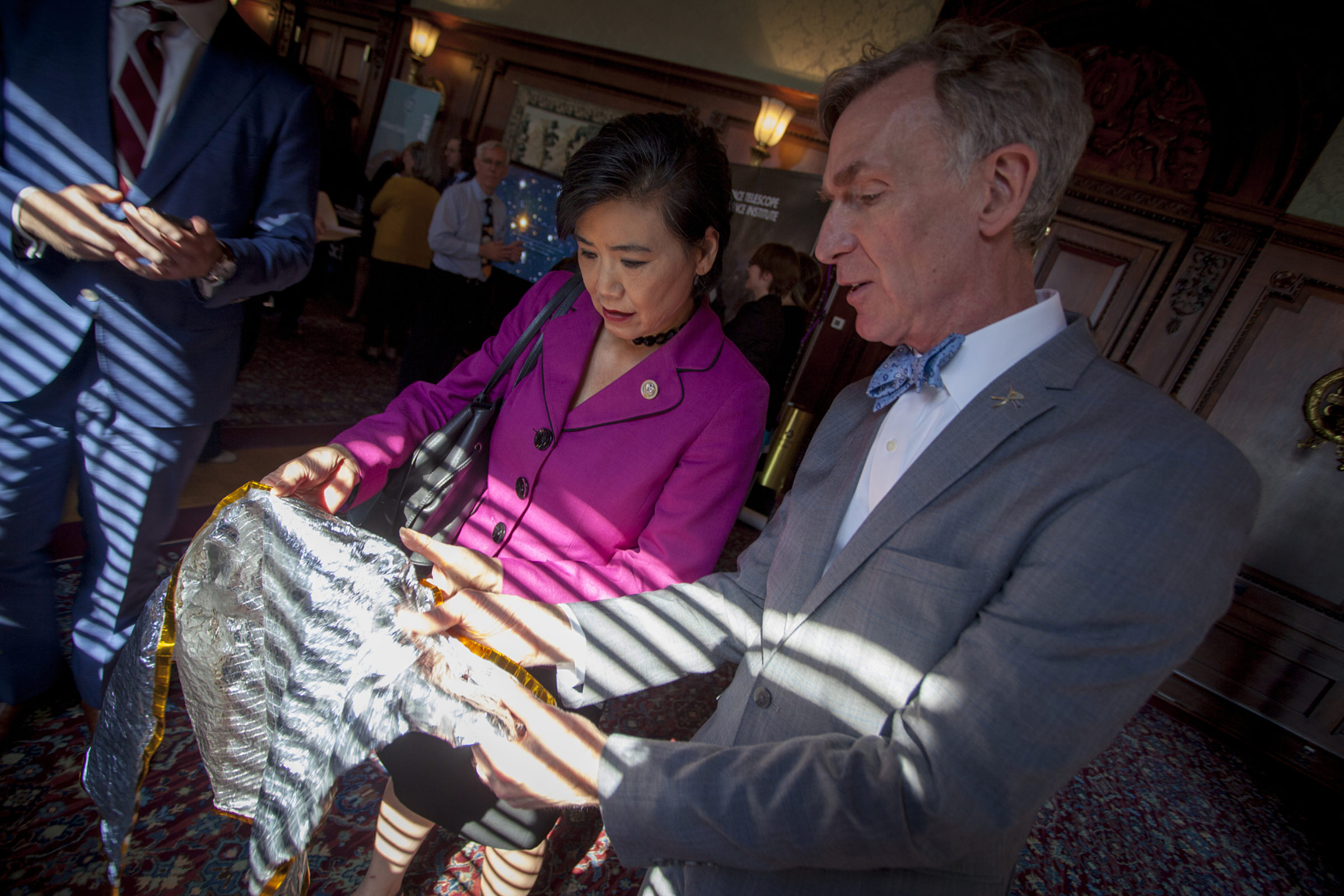
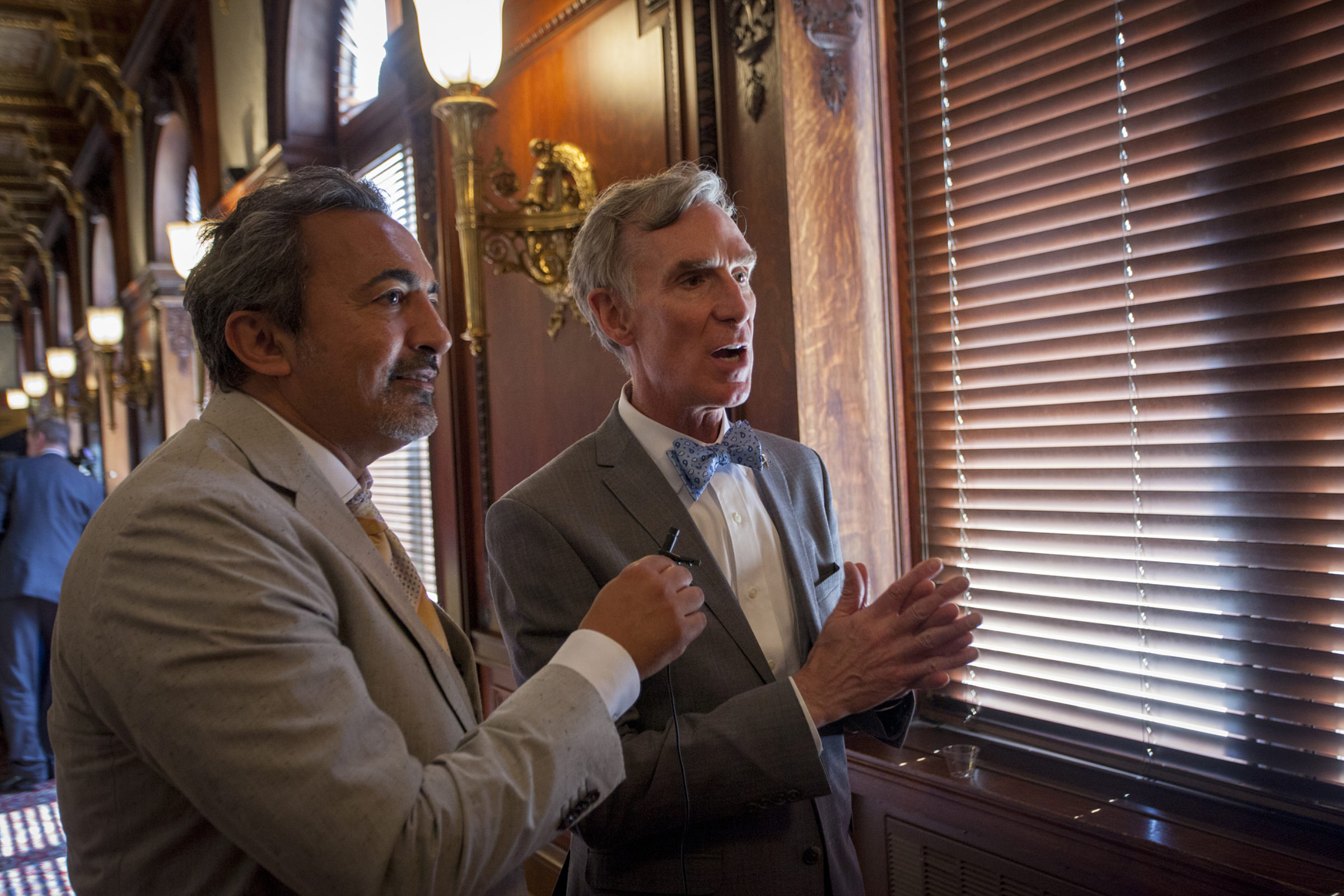
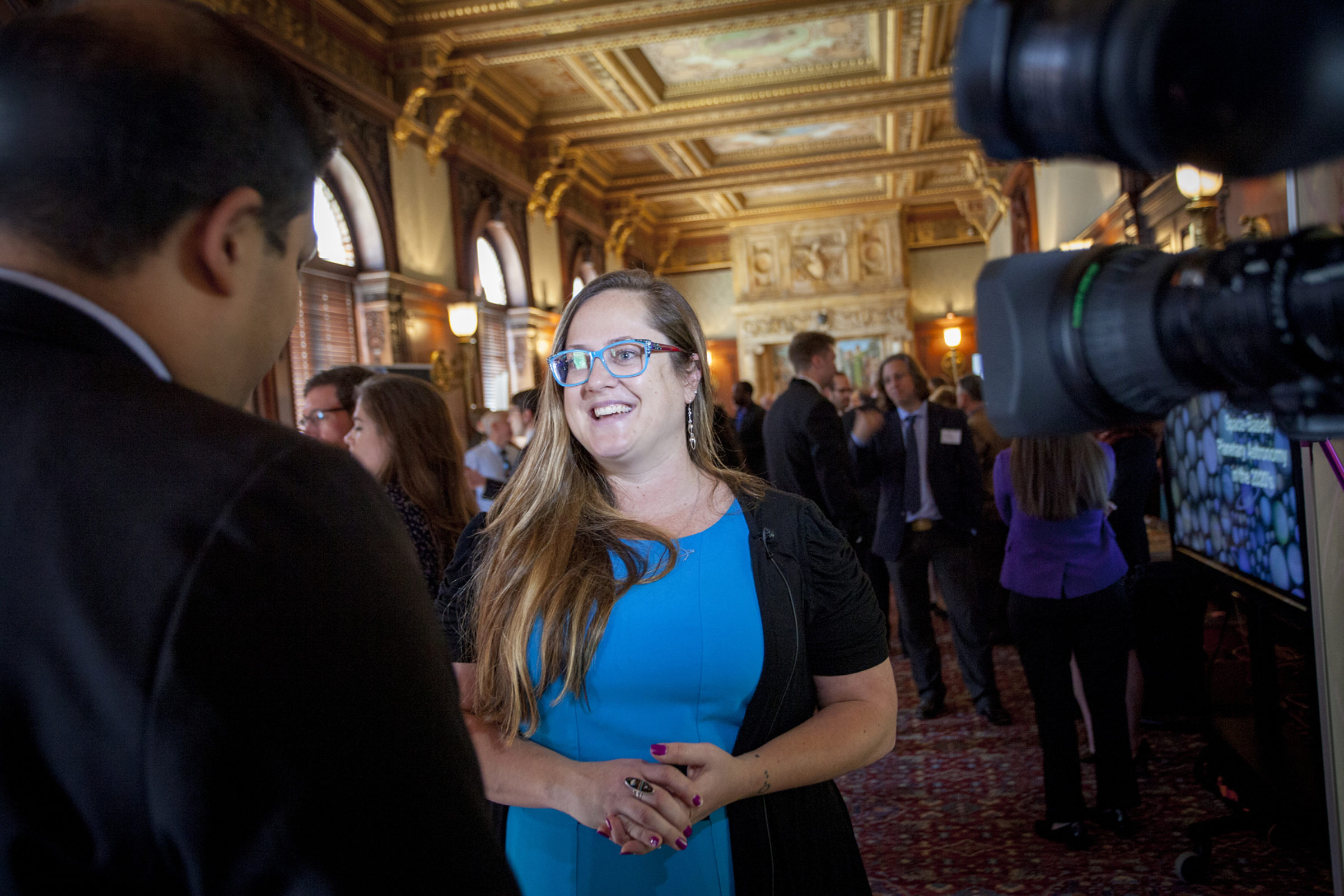
The caucus event provided a unusual opportunity for members of Congress and their staff to have facetime with the scientists and engineers on the front lines of planetary exploration. On the industry side we had Lockheed-Martin, which has made more planetary spacecraft for NASA than any other company in history; we also had Astrobotic, an upstart commercial lunar services company that intends to provide delivery services to the surface of the moon in 2020.
You can’t have planetary science without scientists, and to that end we featured some of the country’s top planetary science academic institutions: Caltech provided a virtual reality tour of the Trappist-1 exoplanetary system. Arizona State University brought the top scientist on the upcoming Psyche mission to a metallic asteroid and highlighted their lunar cubesat project, LunaHMap. The Space Telescope Science Institute, which manages the science side of the James Webb Space Telescope, provided an interactive exhibit demonstrating how JWST will enable planetary astronomy. The American Astronautical Society highlighted how planetary exploration could be done faster and efficiently with is low-cost Discovery program line. And the Advanced Physics Lab at Johns Hopkins University highlighted their role in the upcoming Europa Clipper, among other projects.
The Planetary Society was the founding partner organization of the caucus, and helped to organize the event. There are now over 30 members of the caucus, which has the following goals:
"Find life in our lifetimes," by advancing federal policies that support the search for life in our solar system and beyond.
Raise awareness of the benefits to the U.S. economy and industrial base resulting from federal investment in space science, technology, exploration, and STEM education.
Support private industry, academic institutions, and nonprofits that support space science and exploration.
Support our core enterprises
Your support powers our mission to explore worlds, find life, and defend Earth. You make all the difference when you make a gift. Give today!
Donate

 Explore Worlds
Explore Worlds Find Life
Find Life Defend Earth
Defend Earth

